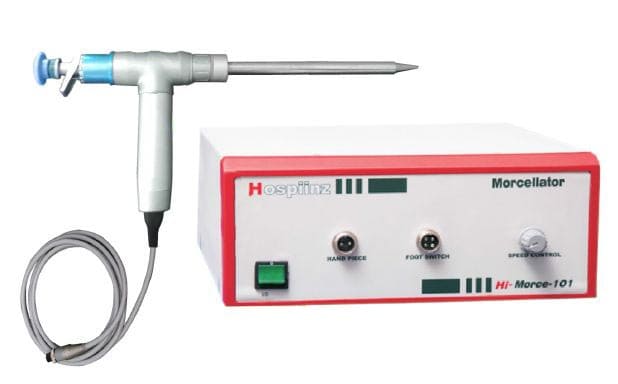
A newly published study shows that the power morcellator, a surgical device commonly used in hysterectomies, has greater potential to spread cancers in a woman’s body than previously thought. The power morcellator, used in hysterectomies and fibroid removal, slices uterine tissue into pieces that can be removed through small laparoscopic incisions, The Wall Street Journal […]
 A newly published study shows that the power morcellator, a surgical device commonly used in hysterectomies, has greater potential to spread cancers in a woman’s body than previously thought.
A newly published study shows that the power morcellator, a surgical device commonly used in hysterectomies, has greater potential to spread cancers in a woman’s body than previously thought.
The power morcellator, used in hysterectomies and fibroid removal, slices uterine tissue into pieces that can be removed through small laparoscopic incisions, The Wall Street Journal reports. In April, the Food and Drug Administration (FDA) advised doctors to stop using morcellators because of the risk of spreading previously undetected cancerous tissue inside the body, significantly worsening the patient’s odds of survival. The new report in the Journal of the American Medical Association reinforces the risks pointed put by the FDA.
Doctors from Columbia University, through an insurance database, identified more than 36,000 women treated with the power morcellator at 500 U.S. hospitals over seven years. They found that 1 in 368 women had a hidden uterine cancer that could be spread by a morcellator, a level of hidden-cancer risk similar to what the FDA found, according to the WSJ.
Uterine sarcomas had been the focus of concern but the new study looked at all cases where a uterine cancer was found after the woman had undergone morcellation, including endometrial cancer, which is far more common, the WSJ reports. The authors said patients should be counseled about the risks of undetected cancerous and precancerous conditions before undergoing the procedure.
Proponents of the morcellator argue that such the surgery is less invasive and has fewer complications and shorter recovery time and the device shouldn’t be banned. But opponents say the risk is too high and they note there are safer alternatives, according to the WSJ.
The FDA held a two-day hearing about morcellators earlier this month and the agency is expected to decide whether to restrict or possibly even ban the use of morcellators. Johnson & Johnson, the largest maker of the tool, suspended sales after the FDA’s April warning.


